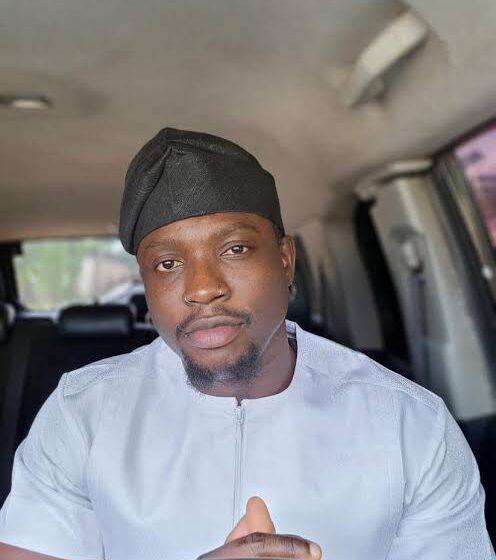Justice served or repression? Criticizing VDM’s arrest by EFCC

Nigerian civil rights activists and social media influencer, Martins Otse. Photo Credit-Pop central
The recent arrest of Martins Vincent Otse, popularly known as VeryDarkMan (VDM), by the Economic and Financial Crimes Commission (EFCC) on May 2, 2025, has sparked a firestorm of debate across Nigeria. The self-proclaimed activist, with over 4 million followers, was detained on allegations of cyberstalking, a charge that many of his supporters argue is a thinly veiled attempt to silence his outspoken criticism of corruption. As a digital advocate for justice, VDM has built a reputation as Nigeria’s “online policeman,” fearlessly confronting politicians, business owners, and even celebrities over issues ranging from unpaid debts to systemic corruption. But does his arrest represent justice served, or has the EFCC crossed a line in its pursuit of law and order?
Why VDM’s arrest is a case of justice served
Looking at this controversy on one hand, the EFCC’s actions can be viewed through the lens of maintaining public order. According to a Nigerian lady featured in the Gossip Mill Nigeria post on May 7, 2025, VDM’s behavior sends a dangerous message to the youth that it is acceptable to “disobey the law and nothing will happen to you.” With over 40 court cases allegedly tied to his name, VDM’s legal troubles are well-documented. The lady argues that his massive following amplifies the potential harm of his actions, warning that his posts on sensitive issues could “throw Nigeria into a state of anarchy.” This perspective aligns with the EFCC’s stated mission to curb activities that destabilize the nation, including cyberstalking, which they claim VDM has engaged in.
There is some sense in the argument that influencers with large platforms bear a big responsibility. VDM’s method, publicly calling out individuals with ultimatums and evidence while effective in delivering swift accountability, often goes outside the boundaries of the law. His involvement in high-profile cases, such as the 2024 allegations of corruption in Nigeria’s correctional services involving crossdresser Bobrisky, has made him a significant figure. Critics argue that his approach, while advocating, undermines formal legal processes and risks inciting mob justice. If VDM’s actions indeed violate laws like the Cybercrimes Act, the EFCC’s intervention could be seen as a necessary step to enforce accountability, particularly for someone who positions himself as a champion of justice.
RELATED STORIES
Is protesting a democratic act? Criticizing Nigeria’s repression
Democracy Day: Uphold Citizens’ Right to Expression, SING Nigeria tells FG
How VeryDarkMan became the soul of Nigeria’s revolution
VDM’s arrest and the double standard in Nigerian justice
Quite on the contrary, the manner of VDM’s arrest and the broader context of Nigeria’s justice system raise serious questions about the EFCC’s motives. According to a BBC News Pidgin report, the EFCC arrested VDM under a warrant signed by Chief Magistrate Njideka Iloanya Duru, but the agency failed to disclose his exact offense to his legal team, prompting accusations of non-transparency. Supporters, including prominent figures like Peter Obi and social media content creators like Nassboi, have condemned the arrest, with Obi likening it to a “kidnapping” due to its lack of transparency. Activist Omoyele Sowore has gone further, alleging that the EFCC is using its authority to silence one of Nigeria’s most outspoken critics of corruption.
This is not an isolated incident. Nigeria’s justice system has a well-documented history of double standards, critics of opposition leaders in Nigeria face no repercussions of their actions but those who are critics of Nigeria’s government policies and ways of managing state’s affairs always get hammered down by arrests, court litigations and sometimes blackmails or threats. VDM’s arrest fits this pattern: a “street boy” with no political connections is targeted, while powerful figures often walk free.
Conclusion- A fine line between justice and repression
So, was VDM’s arrest justice served, or did the EFCC in their usual style have gone ahead to repress a public dissent? The answer lies somewhere in the murky intersection of law, power, and activism. If VDM has indeed broken laws, he should face the consequences, but those consequences must be transparent, fair, and proportionate. The EFCC’s lack of clarity about his offense, combined with Nigeria’s history of selective justice, suggests that this arrest is less about upholding the law and more about silencing a critic. As critics like myself have noted, the law only works for people the government do not like and vice versa for those they like.” Someone like Yahaya Bello, immediate past governor of Kogi state, continue to walk free despite allegations against him on corruption and embezzlement, while VDM is detained with little due process.
Ultimately, VDM’s arrest highlights a deeper systemic issue: the Nigerian government’s repression of grassroots activism that challenges its authority. While VDM’s methods may be controversial, his work has exposed corruption and given a voice to the voiceless. Suppressing him risks alienating the very youth demographic he inspires, a demographic that could play a pivotal role in Nigeria’s future. The EFCC would do well to focus on the real architects of anarchy; corrupt politicians and untouchable elites rather than targeting a man whose greatest crime may be his refusal to stay silent.
In the end, VDM’s arrest feels less like justice and more like crossing a line into repression. What I consider as the bane and crux of this legal controversy is that if Nigeria is to move forward, it must embrace accountability for all, not just for those bold enough to demand it.

